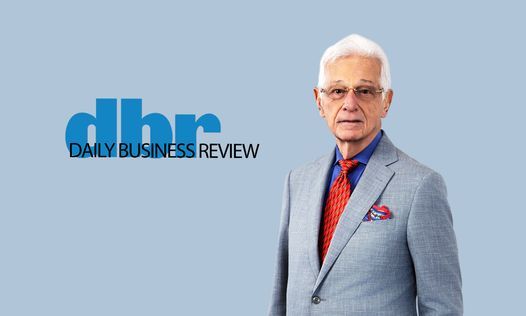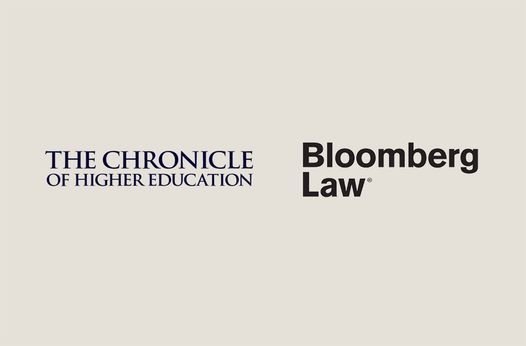Consumer & Class Action Litigation Newsletter - February 2012 Edition
Hinshaw Newsletter | 5 min read
Feb 6, 2012
U.S. Supreme Court: Federal Courts Retain Jurisdiction Over Private TCPA Claims
Resolving a split of authority among the circuits, the U.S. Supreme Court ruled in Mims v. Arrow Financial Services, LLC,No. 10-1195 (Jan. 18, 2012), that Congress did not grant state courts exclusive jurisdiction over private actions for statutory damages under the Telephone Consumer Protection Act (TCPA), 47 U.S.C. § 227. The TCPA prohibits sending unsolicited commercial advertisements by facsimile and using automated dialing equipment to call a cell phone without the called party’s prior consent. The high court’s ruling means that private plaintiffs may bring actions in federal courts for violations of the act.
The TCPA is an unusual federal law because it expressly grants state courts jurisdiction over private suits and does not expressly authorize private parties to sue in federal court. 47 U.S.C. § 227(b)(3). In a unanimous opinion, Justice Ruth Bader Ginsburg wrote that the federal courts retained jurisdiction of TCPA claims unless the text of the statute, “expressly or by fair implication, excludes federal-court adjudication.” The Court concluded that nothing in the statute “makes state court-jurisdiction exclusive, or otherwise purports to oust federal courts” of jurisdiction under 28 U. S. C. § 1331. Thus, private plaintiffs may continue to sue in federal court for alleged TCPA violations.
ACA International (ACA) filed an amicus brief in support of respondent, Arrow Financial Services, LLC, which had argued that state courts had exclusive jurisdiction over private TCPA claims. The ACA brief was prepared by attorneys David M. Schultz and Peter E. Pederson.
The number of TCPA cases has increased dramatically in recent years. According to statistics cited in the ACA’s amicus brief, private plaintiffs filed in federal court 28 TCPA actions in 2009, 234 TCPA actions in 2010, and 310 TCPA actions in the first nine months of 2011 alone.
Mims v. Arrow Financial Services, LLC,No. 10-1195 (Jan. 18, 2012)
For more information, please contact Peter E. Pederson or your regular Hinshaw attorney.
District Court Rejects Argument That HIPAA Trumps TCPA Consent
In Mitchem v. ICS, 2012 WL 170968 (N.D. Ill. 2012), plaintiff debtor alleged that defendant debt collector sought to collect a medical debt and violated the Telephone Consumer Protection Act (TCPA) by using an auto-dialer to call his cell phone. The TCPA prohibits using an auto-dialer to call a cell phone without the called party’s consent.
The Federal Communications Commission (FCC) has ruled that when a consumer releases his or her cell phone number to a creditor in connection with a debt, he or she consents to be contacted at that number by a debt collector seeking payment of the debt. The debtor here conceded that he had released to his medical creditor the number that the debt collector had called. He nonetheless argued that he did not consent to the debt collector’s calls because the Health Insurance Portability and Accountability Act (HIPAA) prohibited the medical creditor from releasing his number to the debt collector. The court certified a class of people who had been contacted on cell phone numbers that were given to the debt collector by medical creditors.
The court entered summary judgment in favor of the debt collector and against the class and the named plaintiff. The court held that HIPAA allows a medical provider to release patient phone numbers without patient consent when the provider is collecting money it is owed. Hence, HIPAA did not limit the debtor’s consent to receive phone calls under the TCPA. The court also held that a medical provider may disclose a phone number to a debt collector under HIPAA’s “reasonably necessary” standard because a phone number is reasonably necessary to collect a medical debt. Additionally, the court questioned whether HIPAA has any bearing on whether a consumer has consented to receive phone calls for purposes of the TCPA.
This case indicates that the question of consumer consent under the TCPA should be resolved with reference to the TCPA’s texts and implementing regulations, not to other bodies of law. Hinshaw handled the defense of this case.
Mitchem v. ICS, 2012 WL 170968 (N.D. Ill. 2012)
For more information, please contact Peter E. Pederson or your regular Hinshaw attorney.
Missouri Supreme Court Holds That Document Cannot Satisfy Business Records Exception Where Document Is Not Generated by the Business Offering It
In Cach v. John Askew, No. SC91780, (Jan. 17, 2012), plaintiff debtor’s credit card account was acquired by another entity pursuant to a buyout of the original bank. The account was subsequently assigned to another company, which then assigned it to defendant debt collector. The debt collector attempted to collect the debt of the debtor. who subsequently made two payments via check but stopped payment on the second check and one month later, sent a letter to the debt collector disputing and requesting proof of the approximately $6,000 debt.
The circuit court entered judgment in favor of the debt collector after determining that it had “purchased and was assigned all rights to collect on [the debtor’s] debt.” The debtor appealed, claiming that he was prejudiced by the admission of “Exhibit 7,” a bill of sale from the bank which acquired the debtor’s credit card account to the first company it was assigned to, because without this exhibit, the debt collector could not show that it had standing to pursue collection of the debt.
The Missouri Supreme Court held that the circuit court had erroneously admitted Exhibit 7 as a business record because the debt collector’s witness lacked sufficient knowledge to show when or how Exhibit 7 was prepared. The Court ruled that, “[t]o be a ‘qualified witness’ who can lay the foundation for a business record pursuant to 490.860, [the witness] must have ‘sufficient knowledge of the business operation and methods of keeping records of the business to give the records probity.’” Because the debt collector’s witness testified only that she had knowledge of how “most of the major banks” the debt collector did business with kept records and not as to her personal knowledge of any of the alleged prior owners of the debtor’s account, this was insufficient. Therefore, the Court held that the debt collector lacked standing to pursue collection of the debt owed by the debtor and reversed the judgment.
Cach v. Askew, No. SC91780, (Jan. 17, 2012)
For more information, please contact your regular Hinshaw attorney.
District Court in Massachusetts Dismisses Complaint Challenging the Validity of an Assignment of Mortgage Allegedly Signed by Known “Robo Signor”
In Peterson v. GMAC Mortgage, LLC,2011 WL 5075613 (D. Mass. Oct. 25, 2011), plaintiff homeowners filed a complaint to prevent the foreclosure of their home by challenging the validity of the assignment of their mortgage. Specifically, they alleged that the assignment of mortgage was executed by a “well known robo signor.” The U.S. District Court for the District of Massachusetts held that the homeowners lacked standing to challenge the assignment of mortgage because they were neither parties to nor granted rights under the assignment of mortgage. The court also ruled that even if the homeowners had standing to challenge the assignment of mortgage, the assignment was presumptively valid under Mass. Gen. Laws c. 183, § 54B.
Pursuant to Section 54B, an assignment of mortgage is binding upon the assignor if a person purporting to be an authorized signatory of the assignor executes the assignment of mortgage and this person’s signature is notarized. The assignor need not prove that the signatories were authorized. The assignment of mortgage in this case was executed by an individual purporting to be a vice president of the assignor, and his signature was notarized. Based on this, the district court dismissed the homeowners’ complaint.
Peterson v. GMAC Mortgage, LLC,2011 WL 5075613 (D. Mass. Oct. 25, 2011)
For more information, please contact your regular Hinshaw attorney.
This newsletter has been prepared by Hinshaw & Culbertson LLP to provide information on recent legal developments of interest to our readers. It is not intended to provide legal advice for a specific situation or to create an attorney-client relationship.
Related Capabilities
Featured Insights

Employment Law Observer
Dec 8, 2025
12 Days of California Labor and Employment: 2025 Year in Review

Press Release
Dec 4, 2025
Hinshaw Recognized by the Leadership Council for Legal Diversity as a 2025 Top Performer

Press Release
Nov 25, 2025
Hinshaw Legal Team Secures Summary Judgment in Gas Station Injury Case

Press Release
Nov 18, 2025
Hinshaw Releases the Third Edition of Duty to Defend: A Fifty-State Survey

In The News
Nov 13, 2025
A Profile on Neil Rollnick: After 57 Years in Practice, He Has No Plans to Retire

Press Release
Oct 22, 2025
Hinshaw & Culbertson LLP Launches New Website and Refreshed Brand








